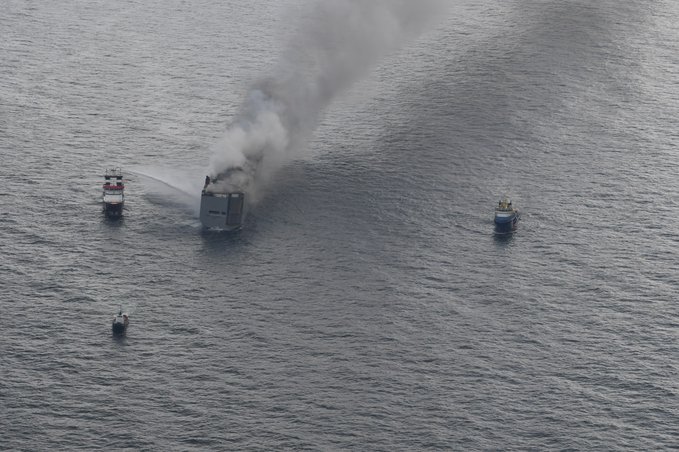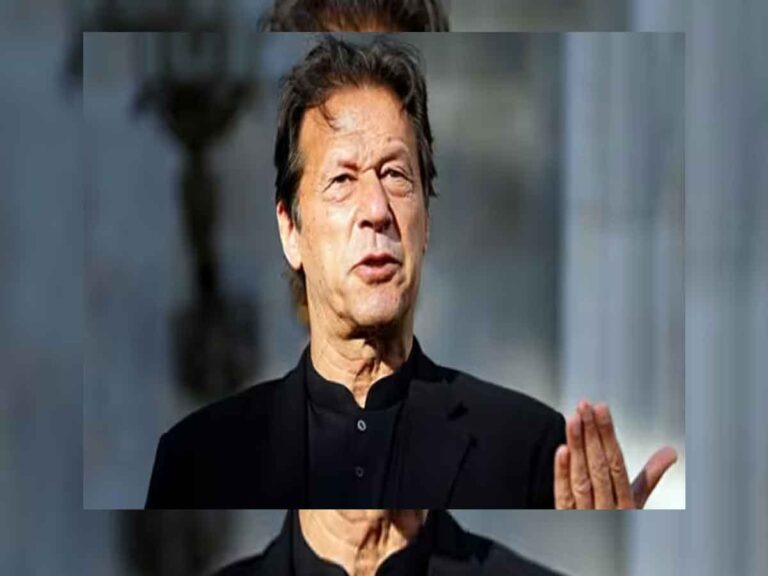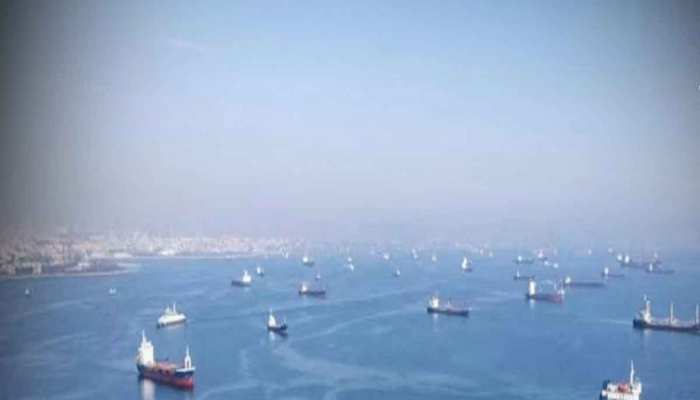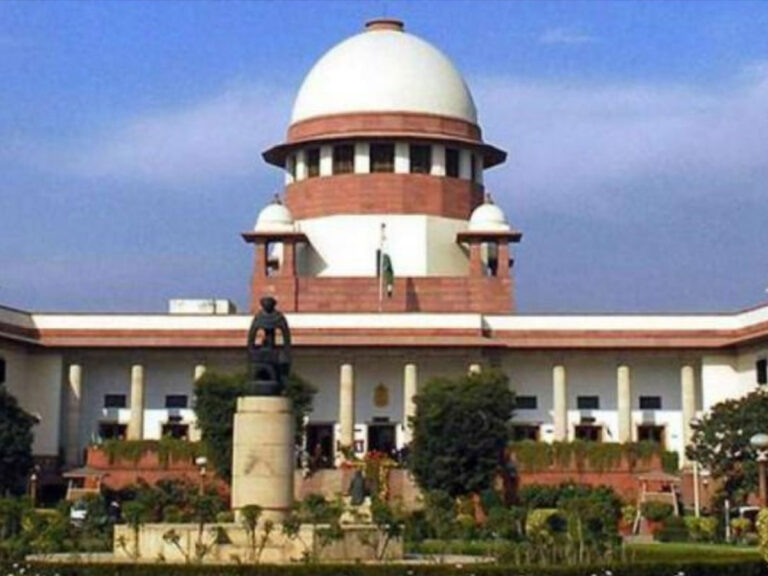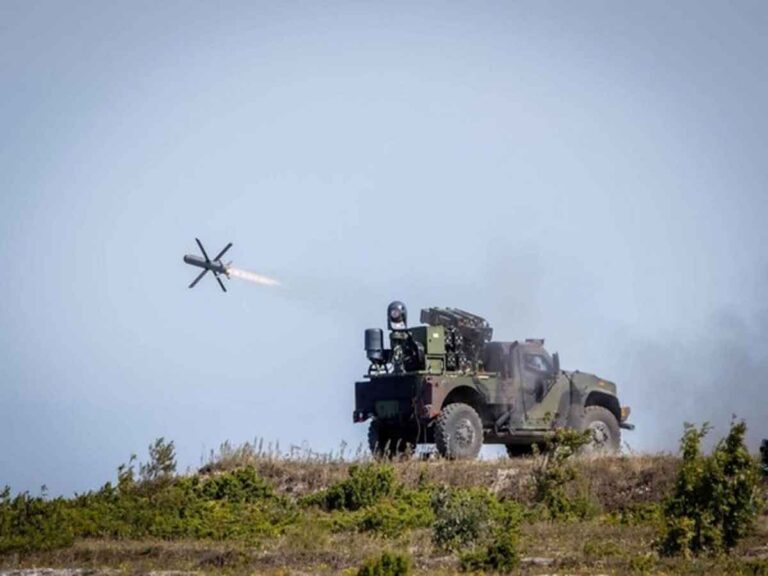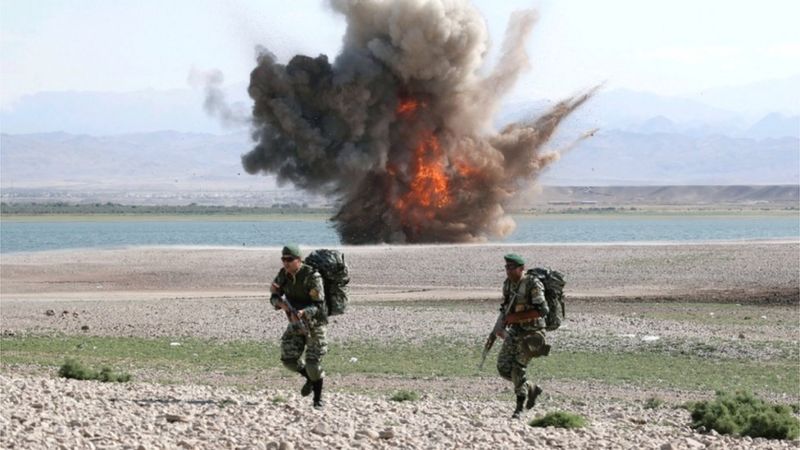
Tensions are gradually deepening between Iran and Azerbaijan. Relations between the two countries, which share a 700-km-long border, have been normal so far, but have seen some turmoil in recent times.
The story of this apparent deterioration in relations began last month when Turkey, Pakistan and Azerbaijan together began a joint military exercise a short distance from the Iranian border.
This military exercise named ‘Three Badrs-2021’ had just started that Iran also announced a military exercise near Azerbaijan.
Condemning Iran’s military exercise, Azerbaijan’s President Ilham Aliyef has said that ‘this is a very shocking incident’.
In an interview to Turkish news agency Anadolu, Aliyef said, “Any country can conduct any military drill on its territory. It is its sovereign right, but why is it happening now and why is it happening on our border?”
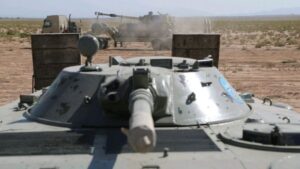
He told Anadolu news agency that it was the first time since the collapse of the Soviet Union 20 years ago that Iran had planned a display of power so close to their border.
- Iran gave a strong answer
Iran did not remain silent after the statement of the President of Azerbaijan, but immediately responded by saying that it was a matter of its ‘sovereignty’.
Iranian Foreign Ministry spokesman Saeed Khatibzadeh issued a statement saying, “The military exercises being conducted by our country in the north-west border areas are a question of sovereignty.”
He said in the statement that Iran will take all measures necessary for its national security.
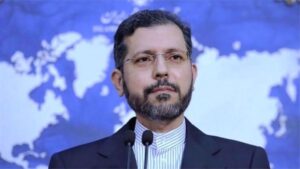
After this, the meaning of this tension can be understood from what Khatibzadeh said in his statement. In his statement, without naming Israel, he said that he would not tolerate the presence of Jewish rule near their border.
Iran’s Foreign Minister Hussein Amir Abdullahiyan, during a meeting with Azerbaijan’s new ambassador on September 30, reiterated that he could not see the presence of the Jewish regime on the border, playing with national security, and that no one would oppose it. You can take necessary steps.
At the same time, Iran’s ambassador to Azerbaijan’s capital Baku, Abbas Mousavi, said last week that Iran’s military exercises were already planned and did not pose a “threat” to Azerbaijan.
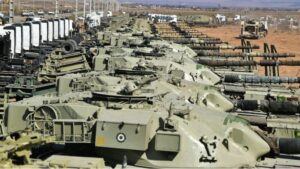
- What is the real cause of stress?
Many reasons are being told behind this tension seen between Iran and Azerbaijan.
Apart from joint military exercises between Turkey, Pakistan and Azerbaijan, many reasons behind this tension are being told to Israel, Azerbaijan’s occupation of Karabakh and people of Azerbaijan origin living in Iran.
First of all, talking about Israel, there is no clear presence of Israel in Azerbaijan, nor does it border with these two countries, but Israel is the largest arms supplier country of Azerbaijan.
Azerbaijan does have working relations with Israel, but it does not officially support the Israeli strategy against Iran.
After Friday prayers on September 17, Iran’s leader Ayatollah Hassan Ameli told the Fars news agency that the military exercise would send a message to Israel.
He said, “Israel has come to Azerbaijan so that it can plot against Iran.”
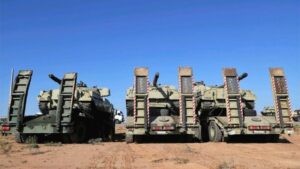
- Azerbaijan’s victory over Armenia is also the reason?
In September last year, there was a war between Azerbaijan and Armenia over the disputed Nagorno-Karabakh region.
About 6,000 lives were lost in the six-week war, and Azerbaijan occupied a large area of Karabakh. Now after this region came under the possession of Azerbaijan, there has been a big impact on Iran’s trade route.
Iran was quietly supporting Armenia in the war between Azerbaijan-Armenia, while Azerbaijan is a Shia-majority country like Iran.
Iran has access to West Asia and Russia through the Karabakh trade route but is now under the control of Azerbaijan.
Tehran-based journalist Fatima Karimkhan told TRT World that Iran used to transport trucks and other transport from there to West Asia and Russia without paying customs until Karabakh was under Armenian occupation.

Karimkhan says that the war has led to Azerbaijan’s control of the Karabakh region, which has blocked Iran’s entry into West Asia and is extorting money from Iran to reach Armenia.
However, for Azerbaijan this policy seems quite simple. He believes that this is his sovereignty and he can take customs for movement from his territory.
In addition, Azerbaijan is concerned that Iranian trucks may cross this route carrying weapons that could end up in the hands of its enemy Armenia.
Apart from this, there is anger in Iran due to the stopping of Iranian trucks. Recently, two Iranian truck drivers were detained by Azerbaijan due to ‘road tax’, after which the Iranian Foreign Ministry asked to release them immediately.
Karimkhan tells TRT World that Azerbaijan’s stopping of trucks is unacceptable to Iran and threatens its trade security in West Asia.
She says that Iran wants to show its seriousness about the road connectivity of Armenia and West Asia through military exercises.
- Is Iran afraid of people of Azerbaijan origin?
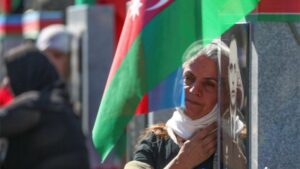
Most Azerbaijanis refer to the northern region of Iran as South Azerbaijan, where about 20 million people of Azerbaijani origin live.
Many Azerbaijani nationalists and intellectuals have been demanding the unification of the northern and southern parts in the name of cultural and social identity, which has been called ‘Greater Azerbaijan’. All this bothers Iran.
This problem increased when Turkey-Pakistan-Azerbaijan trio started military exercises together.
Matthew Brezza, Senior Fellow of the Atlantic Council and former US Ambassador to Azerbaijan, tells TRT World that the three-nation joint military exercise in Iran shows the Azerbaijani people a kind of strength against Iran.
Brezza believes that Iran wants to give a signal to its Azerbaijani community by conducting this military exercise near the border.
“It’s also a sign for the ethnic Azerbaijani community, who have a large presence in northern Iran,” he says. When the war of Azerbaijan lasted for 44 days, the Azerbaijani people of northern Iran showed great interest in it.
There were also demonstrations in support of Azerbaijan in northern Iran during the Azerbaijan–Armenian War.
Tehran is concerned about this same Azerbaijani separatism, which it thinks may increase. That is why Matthew Brezza says that this military exercise near the border is a signal to the people of Azerbaijan living in the country.
At the same time, Professor Turaz Atabaki, an expert on Middle East affairs at Leiden University in the Netherlands, says to Radio Free Europe that Iran is also worried about being sidelined.
He says, “Turkey is the second largest shareholder of the NATO army, while Pakistan is the nuclear power in the region. When these two countries have engaged in military exercises with Azerbaijan, it worries Russia and Iran. Moreover, the armies of the Islamic republics. The practice is a matter of concern for him.”
In a way, it seems that Iran’s military exercises on the border of Azerbaijan are being done keeping in mind many fronts.

